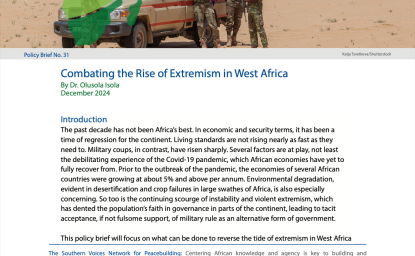Just days after suicide attacks killed more than 30 people and wounded 200 others in Brussels, Belgium, a Taliban faction carried out a suicide attack Sunday at a public park in Lahore, Pakistan, that killed more than 70 and wounded some 300.
U.S. networks and newspapers reported on the incident, but we won’t see top-notch U.S. broadcast journalists flock to Pakistan for days as happened after Brussels and after the Paris attacks in November, or the sort of blanket coverage that followed those incidents. One might expect increased interest in the West because the attack was carried out on Easter Day and, according to a spokesman for the group that claimed responsibility, targeted Christians. As a society, we care more about terrorism in the U.S. and Europe than what happens in parts of the Third and Fourth Worlds. But Westerners accustomed to thinking such things happen someplace else should expect more attacks as jihadi groups seek to draw in financing and recruits.
Others attribute the collective lack of interest to the prejudice of low expectations: These kinds of attacks aren’t supposed to happen in Paris or Brussels but we’ve grown conditioned to their occurrence elsewhere.
Some interpret these perceptions as racist-–that for many in the West white lives are more precious than brown, black, or Asian lives. Others attribute the collective lack of interest to the prejudice of low expectations: These kinds of attacks aren’t supposed to happen in Paris or Brussels but we’ve grown conditioned to their occurrence elsewhere. It’s the sort of thinking that dovetails with Facebook safety-alert check-in options after the Paris attacks but not after the suicide blasts in Beirut that killed 43 people the same week. And usually terror is far away: The vast majority of the world’s terrorism in 2015 took place in five countries–Iraq, Syria, Afghanistan, Pakistan, and Nigeria–according to an annual analysis by the Institute for Economics and Peace calculated before the Paris and San Bernardino attacks.
The savage online theater of ISIS extremists’ beheadings, hostage-taking, and bloody attacks in Western cities evokes deep fears, as well as hopes that the Hydra-headed monster will be killed.
For all the U.S. sense of remove from many terrorism incidents, certain attacks understandably resonate here more than others. The Taliban’s reign of terror in Pakistan and Afghanistan is an old and complicated story. The rise of Islamic State, by contrast, is dramatic, brutal, and relevant in the West. The savage online theater of ISIS extremists’ beheadings, hostage-taking, and bloody attacks in Western cities evokes deep fears, as well as hopes that the Hydra-headed monster will be killed. Boko Haram directly killed more 6,500 people last year, more than ISIS–to which it has pledged loyalty–but because those deaths occurred in Africa the brutality feels less relevant to Western fears.
Coverage of some incidents is likely to be thinner for practical reasons, too. Reporting on the Taliban in Pakistan or Boko Haram in Nigeria is dangerous. Amnesty International documented 34 cases of journalists being killed in Pakistan from 2008 through April 2014 in response to their work. In Nigeria, journalists are less secure than in first-world cities such as Paris and Brussels, and local media outlets are often far away. Massacres by Boko Haram have not only garnered less media attention in the West, but its extremists are not always directly called out in the area: President Goodluck Jonathan has delayed comment at times, possibly to limit attention to his government’s failures.
Extremist Islamist ideology is thriving in some ungoverned spaces; in others, local conflicts and sectarian tensions are creating openings for it. With this growth will come more terror and violence on a global scale–further diminishing the distances between us all.
The opinions expressed here are solely those of the author.
This article was originally published in The Wall Street Journal's Washington Wire.





